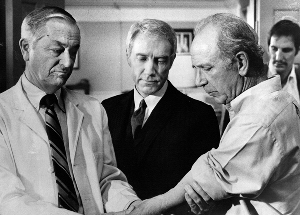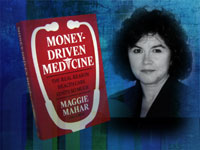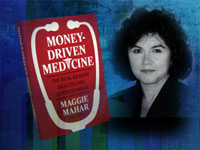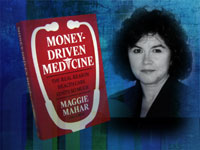
Image: Jordan Maxwell
We all know why Liberals want to make health care available for all Americans. Liberals have bleeding hearts and a proclivity for redistributing wealth from the rich to the poor.
They would agree with Peter Montague that “the growing gap between rich and poor has not been ordained by extraterrestrial beings. It has been created by the policies of government.” And government should fix it.
Conservatives, on the other hand, believe in the unfettered hand of the free-market system. It’s a system that may produce social and economic inequalities, but you can blame the individual for that, not government policies. Read more























